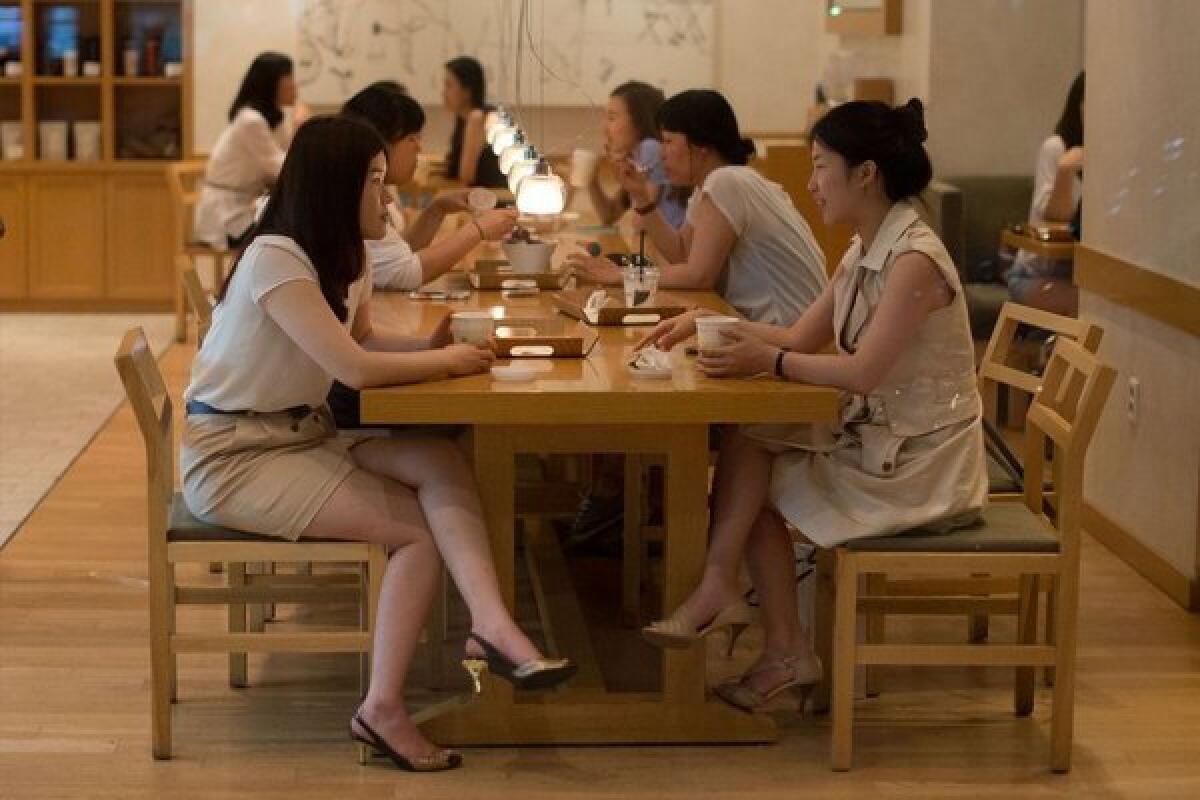South Koreans work less but are no happier (except about work hours)

- Share via
South Koreans may be the hardest-working people on the planet. Their work hours are notorious. They worked so much that in 2004 the government instituted a five-day, 40-hour initiative to dial down the workweek.
Saturdays off! All good, right? But a new study shows that despite a two-day weekend and fewer overall hours at work, South Koreans are no happier. There’s a notable exception: They are happier about spending fewer hours at work!
The Journal of Happiness Studies published the study, whose abstract states that work-hour reductions “had no impact on job and life satisfaction. Thus, long working hours might not be as negatively related to worker well-being as predicted.”
However, “satisfaction with working hours increased.” In other words, workers said: One thing I’m happy about? Working less.
In 2004, the five-day workweek was introduced in certain workplaces in South Korea, according to Tom Ginsburg’s “Legal Reform in Korea.” The five-day system was begun in the public sector, at finance and insurance companies and businesses with 1,000 full-time workers or more. The goal of the reform was 40 hours per week -- South Korean workers had been averaging nearly 50.
As the Telegraph reports, the aim of the policy was to reduce drawbacks of working very long hours -- such as low productivity and more workplace injuries.
Change, however, is difficult. A graphic of working-hours data from 2008 showed South Koreans still hard at work. South Koreans were putting in the longest hours of workers in any industrialized country -- 2,256 for the year, compared with 1,792 by U.S. workers. By 2012, that number had dropped only slightly, to 2,163, according to the Organization for Economic Cooperation and Development.
Robert Rudolf, a professor at Seoul’s Korea University, conducted the study of urban South Korean households from 1998 to 2008. He found that of those who did cut down on their hours, working wives and moms were happiest with the change. That’s chalked up to working women now having to face fewer conflicting obligations in a traditional society.
All workers, however, had to face the drawbacks of the shorter workweek -- employers expect the same level of productivity packed into fewer hours. Plus, some companies have cut down on time off at holidays.
ALSO:
McDonald’s prepares to roll out Mighty Wings
Baby boomers may have no one to care for them in old age
Many Americans don’t understand fine print of credit cards
More to Read
Inside the business of entertainment
The Wide Shot brings you news, analysis and insights on everything from streaming wars to production — and what it all means for the future.
You may occasionally receive promotional content from the Los Angeles Times.











